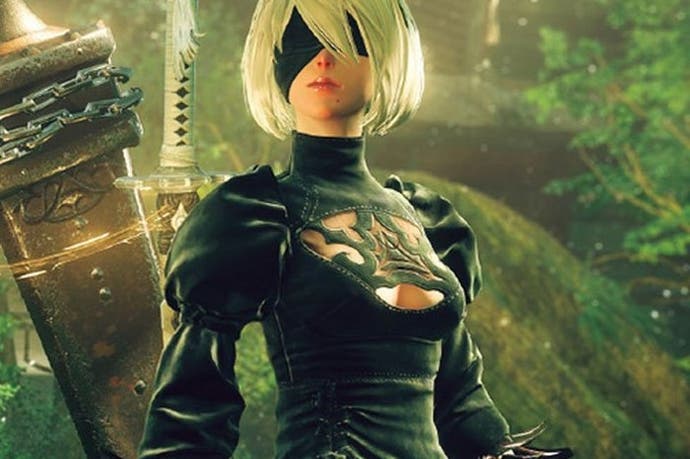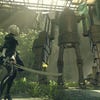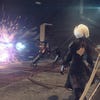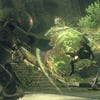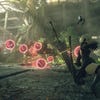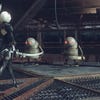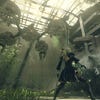Nier's sequel will have all the weirdness of the original, plus a little more polish
Why Square Enix revived a cult classic, and what to expect from the sequel.
It was, in its own way, the biggest surprise of this year's E3. In a year when we got the announcements of Shenmue 3, the remake of Final Fantasy 7 and the return of The Last Guardian, that's not bad going. No-one outside of Square Enix could have predicted that, five years after the original's middling reception played a part in the closure of developer Cavia, Nier was to get a sequel.
Perhaps we shouldn't be surprised. Nier was always great at wrong footing people.
"The first game, it wasn't necessarily a massive success," admits Square Enix producer Yosuke Saito, a member of the original team who's returning for the sequel. "But we really did want to make a sequel right from the start, we'd always have liked to have done that. Unless we could get together a team and it makes sense business wise anyway then we really couldn't do it anyway."
Saito has done strong work in getting that team together. Composer Keiichi Okabe returns, while character artist Akihiko Yoshida - the man who penned the inhabitants of Final Fantasy's Ivalice, and more recently Eorzea - lends his own talents. Platinum Games is there to ensure the action's got a razor sharp edge and, most importantly, the eccentric, adorable Yoko Taro is back in the director's chair.
"After making the first two Drakengard games I really wanted to make a third game in the series and was aching to do that," says Taro as he sits beside Saito in a hotel restaurant in Paris, revealing new details on what is now called Nier Automata. "I went to the producer and he said nah, we don't really need to make another Drakengard. I was quite annoyed at that! Then an opportunity came to do a game with Mr. Saito, so I used what I'd already planned out with Drakengard 3 with this project, and that's what became Nier.
"After we finished Nier, I said to Mr. Saito I wanted to make another Nier game, and do a Nier sequel. But he said it didn't sell particularly well so we couldn't make one, and it just so happened in another place the opportunity came to do Drakengard 3, so it was pretty much the same thing over again."
The first Nier started as a spin-off from the Drakengard series, though as those who have played it will tell you it quickly became much more than that. A genre-splicing, offbeat and frequently touching action RPG, the middling critical reception it received at the time soon gave way to cult status. It's one of those rare games, Jeffrey recently suggested, that gets better with age.
"It was a bit of an experiment really," says Taro. "I remember at the time thinking modern games, they're really well made and they've got so much love and time put into making them expansive and great, but once you've played most of them for 30 minutes you get an idea what they're like right to the end, and that's a bit boring. You're not going to see anything new after that. I decided we're going to keep mixing it up and changing the gameplay styles and try to achieve that with Nier.
Nier Automata, of course, will carry on providing those sudden shifts "The basic framework of the game is similar to the first," explains Taro. "You've got action bits and you've got adventuring and exploration as well. When I first got the request to set the game up from Saito-san, he requested a more action type of game, but I personally wanted to make something that was closer to Ocarina of Time, where you've got lots of field areas and you travel and do battle. I thought it was a really natural, really nice way for the game to be, so I tried to twist his brief to make it more of the kind of thing I wanted to make, and I think I've got it more of mine than his."
Even within the first ten minutes, the expectations of the audience are going to be radically challenged, and Taro's keen to keep up that pace. "I really want to keep that turnaround of surprises for the player in Nier 2. I like doing new things, and I'm going try and experiment and add something new and different. It may fail, it may not be received well, but I really want to add that and create that uniqueness. Maybe I should make a really boring, tedious game. They'd be surprised by that instead!"
"There's one other idea I had recently to make the game a big surprise to people," he carries on, with a prankish smile. "That was to give you random endings as paid DLC. But they said no to that. The team really didn't like that idea." Taro, as you can probably tell, is a mischievous sort. When asked what it is that defines Taro's games, Saito suggests, simply, that it's drinking. "It's quite weird," says Taro. "All the stories I write when I'm drunk are the ones that are really popular. It's probably the players rather than me though." It's that same mischievous spirit you can sense in the freewheeling madness of Nier, more of which is promised in Automata. While it will retain elements of the original, and some characters will return, it's essentially a new start with a new cast. Story details remain slim, with the newly revealed basic set-up being that humanity has been banished to the moon after an apocalyptic event on earth, with mechanoids being sent to the planet's surface to try and reclaim it. 2B, the one character that's been revealed so far who looks like she recently stopped over in one of Akihabara's maid cafes, is one of those androids.
Given how so much of Nier's appeal is its ability to surprise, you'd kind of hope that the story details remain slim. "Obviously we're going to have to reveal more information at some point," says Saito. "It's difficult, and we've got to be mindful of what we show. What we're showing now is a development of what we saw in the first game. If we showed the more out there parts, the people who played the original will think it's something completely different - you don't want to give the wrong impression. The other thing we really want to get it is, because it's made by Platinum Games, they make really cool action games."
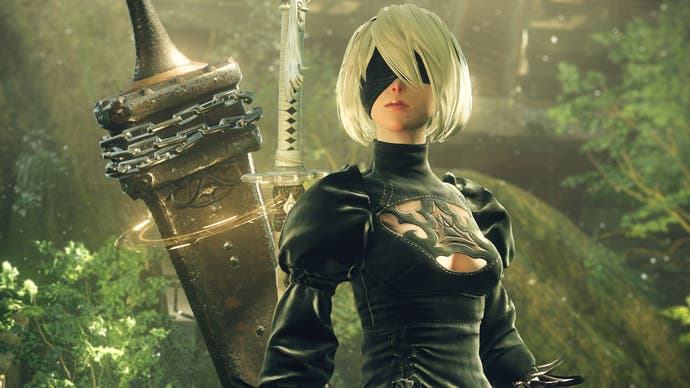
Platinum Games' involvement is an attempt to sidestep the one main criticism aimed at the original Nier, namely its technical shortcomings. "I remember at the time we brought out the game, people were starting to know how to use the PS3 and 360 and get some good quality out of them, says Saito. "Development of Nier was delayed a little while, and in the first year when we were doing the base engine for the game, it didn't take shape for a long time. Maybe we came out a bit later than the other games that we started in development as our contemporaries, so we were against games that were really, really good. Maybe that linked in to why we didn't get a great Metacritic rating at the time. It's certainly one of our regrets."
To that end, Square Enix is announcing that the sequel is shooting for 60fps - and, beyond that, players can expect a game with the polish that's typical of Nier Automata's developer. "Certainly Platinum Games is renowned for making great games," says Saito, "They've got a very good reputation, and the games they produce people can be very confident that they'll have a good experience. Having them onboard for Nier was very important to this project. The other great thing about Platinum Games is because they're so talented it really frees up Mr. Taro to do what his best and write the story, and get that weird stuff out of his head. It's really comfortable for him to work with them, because they're just so good."
"It's interesting," Taro chimes in. "All the time I spent on the original getting angry at the development team, obviously Platinum's removed that by working so well, so I spend that time drinking. In the end it hasn't really changed how much work I do. But when I drink I make better games, so that's okay."
